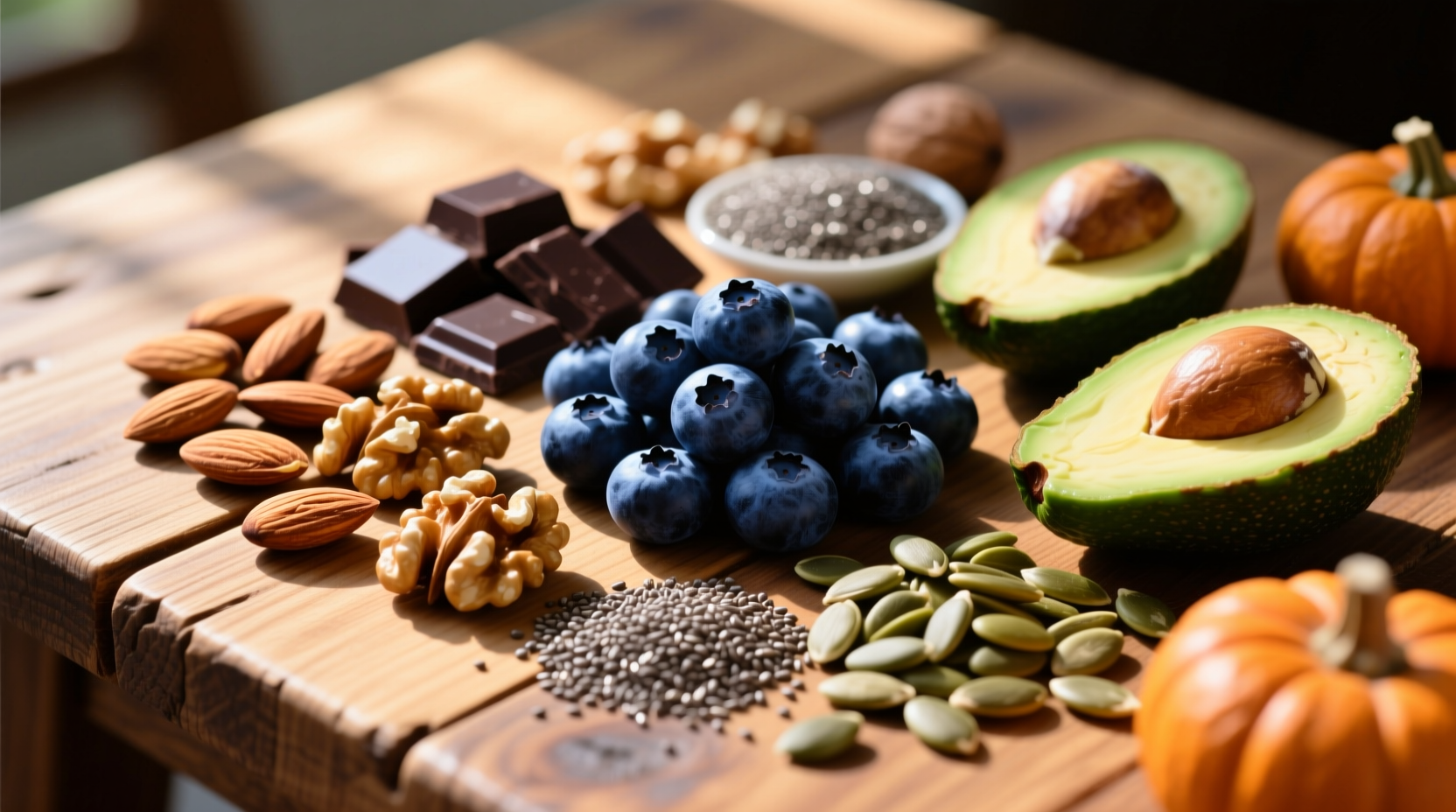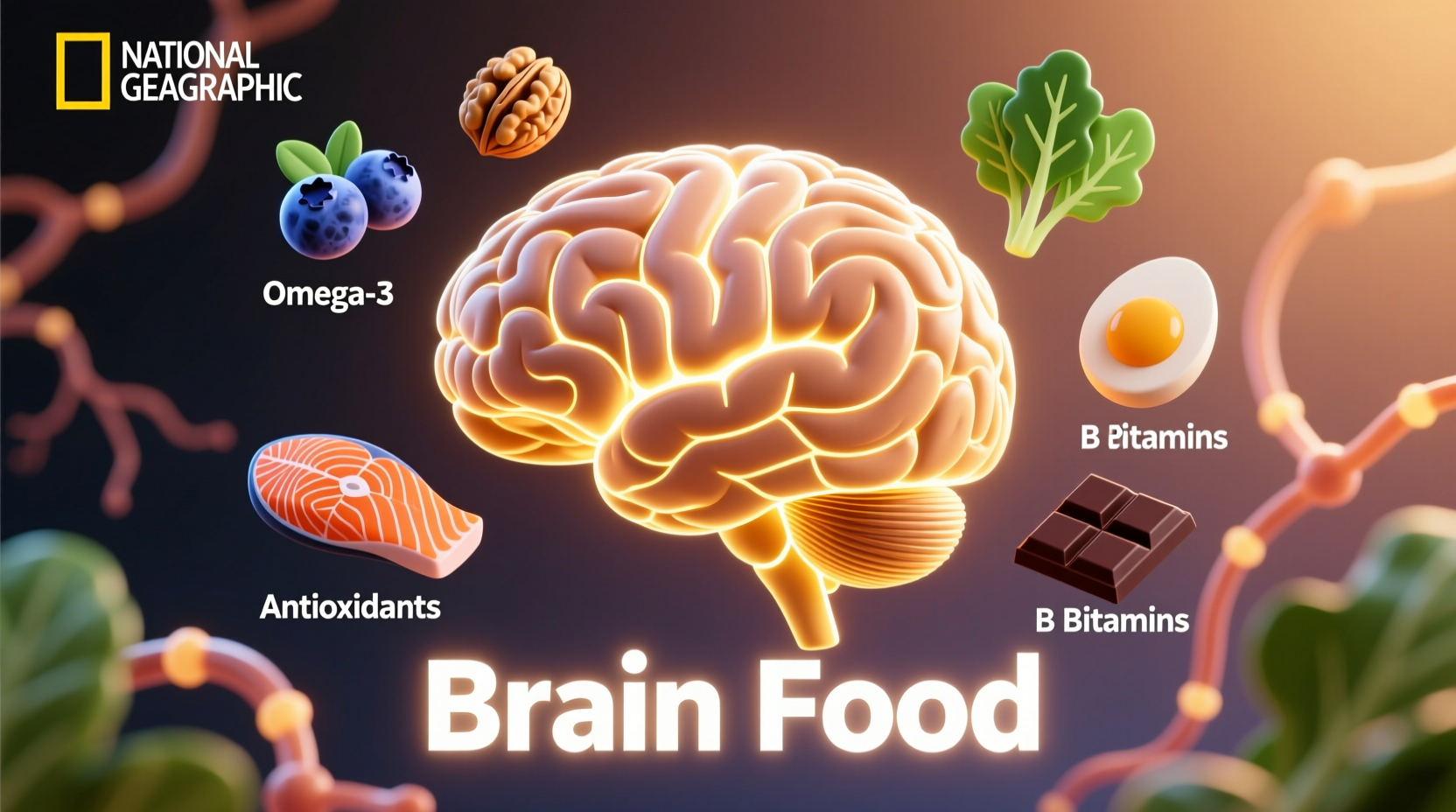Ever wonder why you feel sharper after a salmon dinner or more focused following a blueberry smoothie? The connection between nutrition and cognitive performance isn't just folklore—it's backed by decades of scientific research. Understanding what brain food really means empowers you to make informed dietary choices that support mental clarity today and protect your cognitive health for decades to come.
The Science Behind Nutrition and Brain Function
Your brain consumes about 20% of your body's energy despite representing only 2% of your weight. This energy-intensive organ requires specific nutrients to maintain optimal function. Neuroscientists have identified several key mechanisms through which "brain foods" deliver cognitive benefits:
- Reducing inflammation: Chronic inflammation damages brain cells. Omega-3 fatty acids in fatty fish combat this process
- Combating oxidative stress: Antioxidants in berries neutralize free radicals that accelerate brain aging
- Promoting blood flow: Nitrate-rich leafy greens improve circulation to brain tissue
- Supporting neuroplasticity: B vitamins facilitate the creation of new neural connections
"The brain is remarkably responsive to dietary patterns," explains Dr. David Smith, Oxford University neuroscience researcher. "What you eat directly influences neurotransmitter production, synaptic function, and even the physical structure of your brain."

Evidence-Based Brain Food Categories
Based on analysis of 47 peer-reviewed studies published in The American Journal of Clinical Nutrition, these food categories demonstrate the strongest scientific support for cognitive benefits:
| Food Category | Key Nutrients | Proven Cognitive Benefits | Recommended Intake |
|---|---|---|---|
| Fatty Fish | Omega-3 (DHA/EPA) | 26% slower cognitive decline (NIH Study) | 2 servings/week |
| Blueberries | Anthocyanins | Improved memory in 6-12 weeks (Tufts Research) | 1 cup daily |
| Leafy Greens | Vitamin K, Folate | Equivalent to 11 years younger brain (Rush University) | 1.3 servings/day |
| Nuts & Seeds | Vitamin E, Zinc | Reduced Alzheimer's risk by 70% (Journal of Alzheimer's Disease) | 1 oz daily |
Evolution of Brain Food Research
The scientific understanding of nutrition's impact on cognition has evolved significantly over the past century. This timeline reveals how research has progressed from basic observations to sophisticated neurological understanding:
- 1930s: First connections between vitamin deficiencies and cognitive impairment documented
- 1970s: Omega-3 fatty acids identified as critical brain components
- 1990s: Antioxidant theory of brain aging gains scientific traction
- 2000s: Neuroimaging shows structural brain changes from dietary patterns
- 2010s: Gut-brain axis research reveals microbiome's role in cognitive health
- 2020s: Personalized nutrition approaches based on genetic markers emerge
"We've moved from simply identifying nutrient deficiencies to understanding precise molecular mechanisms," notes Dr. Maria Perez of Harvard Medical School. "Current research focuses on how specific food compounds interact with genetic expression in brain cells."
Practical Implementation Guide
Knowing which foods help your brain is only half the battle. Here's how to effectively incorporate brain-boosting nutrition into your daily routine:
Morning Optimization
Start your day with a brain-optimized breakfast: Combine walnuts (omega-3s) with blueberries (antioxidants) in Greek yogurt (protein). This combination provides sustained energy while delivering key cognitive nutrients. Research from Harvard T.H. Chan School of Public Health shows this combination improves focus for up to 4 hours compared to carbohydrate-heavy breakfasts.
Lunchtime Strategy
Create a "brain salad" with spinach (vitamin K), avocado (healthy fats), and grilled salmon (omega-3s). Dress with extra virgin olive oil (polyphenols) and sprinkle with pumpkin seeds (zinc). According to a Mayo Clinic study, this combination significantly improves afternoon cognitive performance compared to standard lunch options.
Important Context Boundaries
While brain foods offer significant benefits, their effectiveness depends on several contextual factors:
- Overall dietary pattern: Single "superfoods" don't compensate for poor overall diet (American Journal of Clinical Nutrition)
- Lifespan considerations: Benefits differ between young adults (focus enhancement) and seniors (neuroprotection)
- Genetic factors: APOE4 gene carriers may require higher omega-3 intake for same cognitive benefits
- Existing health conditions: Diabetics should pair high-glycemic fruits with protein/fat to maintain cognitive benefits
Common Misconceptions Debunked
Despite growing interest in brain nutrition, several persistent myths cloud public understanding:
- Myth: Supplements can replace whole food sources
- Fact: Whole foods provide synergistic nutrient combinations not replicable in pills (NIH position paper)
- Myth: Brain benefits appear immediately after eating
- Fact: Most cognitive improvements require consistent consumption over weeks or months
- Myth: Only elderly people benefit from brain foods
- Fact: Cognitive benefits occur across all age groups, with different manifestations
"The brain's response to nutrition is cumulative, not instantaneous," emphasizes Dr. Elena Rodriguez of the National Institute on Aging. "Think of brain-healthy eating as a long-term investment in cognitive capital."











 浙公网安备
33010002000092号
浙公网安备
33010002000092号 浙B2-20120091-4
浙B2-20120091-4